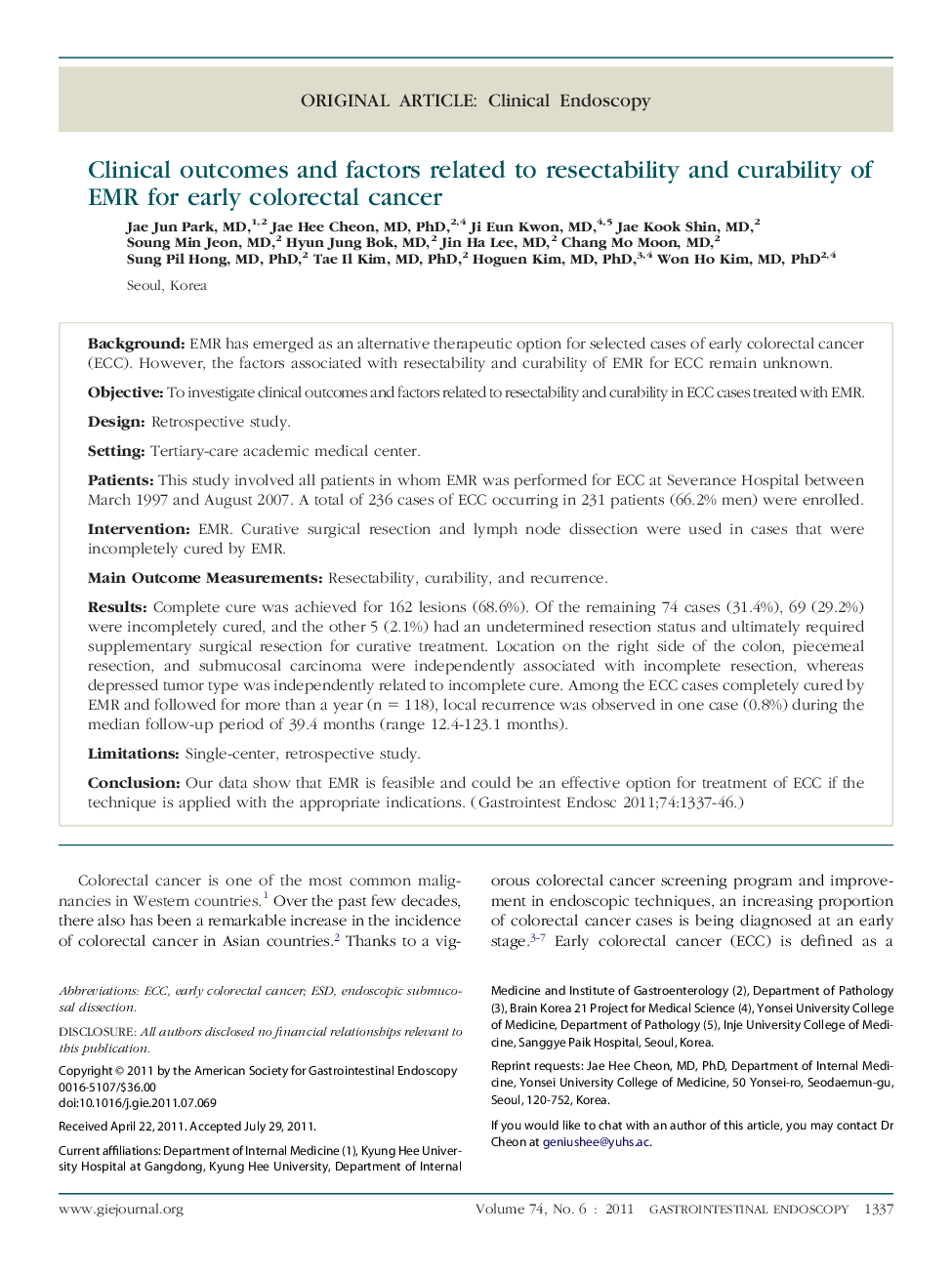| Article ID | Journal | Published Year | Pages | File Type |
|---|---|---|---|---|
| 3305063 | Gastrointestinal Endoscopy | 2011 | 10 Pages |
BackgroundEMR has emerged as an alternative therapeutic option for selected cases of early colorectal cancer (ECC). However, the factors associated with resectability and curability of EMR for ECC remain unknown.ObjectiveTo investigate clinical outcomes and factors related to resectability and curability in ECC cases treated with EMR.DesignRetrospective study.SettingTertiary-care academic medical center.PatientsThis study involved all patients in whom EMR was performed for ECC at Severance Hospital between March 1997 and August 2007. A total of 236 cases of ECC occurring in 231 patients (66.2% men) were enrolled.InterventionEMR. Curative surgical resection and lymph node dissection were used in cases that were incompletely cured by EMR.Main Outcome MeasurementsResectability, curability, and recurrence.ResultsComplete cure was achieved for 162 lesions (68.6%). Of the remaining 74 cases (31.4%), 69 (29.2%) were incompletely cured, and the other 5 (2.1%) had an undetermined resection status and ultimately required supplementary surgical resection for curative treatment. Location on the right side of the colon, piecemeal resection, and submucosal carcinoma were independently associated with incomplete resection, whereas depressed tumor type was independently related to incomplete cure. Among the ECC cases completely cured by EMR and followed for more than a year (n = 118), local recurrence was observed in one case (0.8%) during the median follow-up period of 39.4 months (range 12.4-123.1 months).LimitationsSingle-center, retrospective study.ConclusionOur data show that EMR is feasible and could be an effective option for treatment of ECC if the technique is applied with the appropriate indications.
